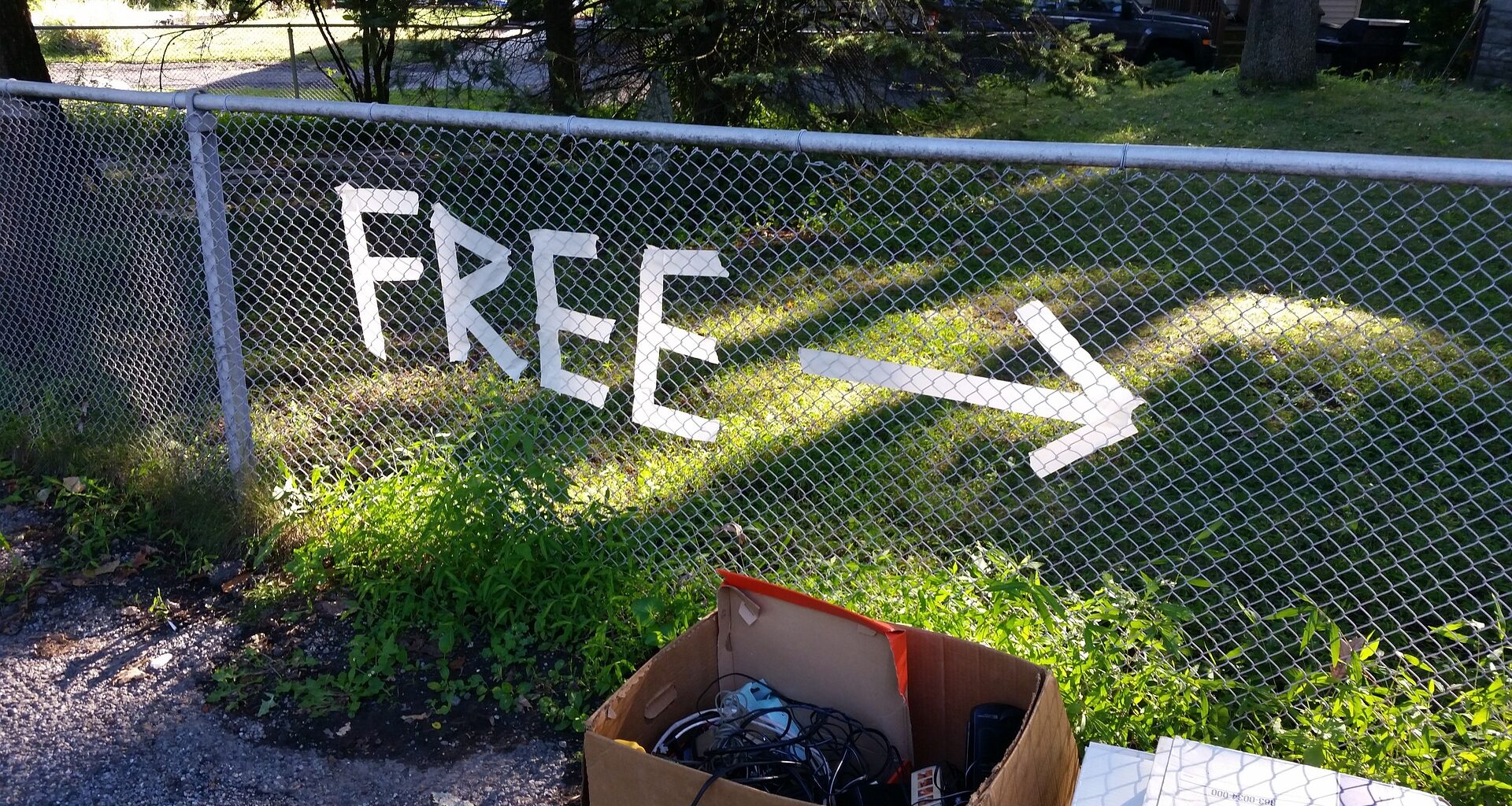So, after waxing poetically about CDs and DVDs from 2 decades ago and ripping a couple of select anime series1 and movies, I turned around and threw away the disks. As opposed to searching for sparks of joy as per Marie Kondo’s book, I followed some advice my mom gave me in applying a more practical heuristic: if it’d costs less to buy new than to hire someone to pack and move it, then don’t bother. By those standards, a lot of stuff becomes eligible to materialistic exile.
But I also tend to keep stuff in fairly good condition2, and I try to sell or give away what I can before it goes into the trash can. Craigslist has been my go-to, though recently I’ve been posting more to Facebook Marketplace and Nextdoor as they feel slightly less anonymous and correspondingly less risky. Previously, I’d set the price at a few bucks to filter for seriousness, but we do have a lot of stuff to get rid of, so a bunch of items went out onto the free section of the marketplace.
I guess I shouldn’t be surprised that there’s a lot more people who hang out in the free section and jump on any item that comes up. There’s just something magical when the price reaches $0 which triggers a set of impulses, different from the usual benefit-to-cost decisions on any other price. It’s the psychological equivalent of dividing by zero, which of course results in infinity and causes the universe to collapse on itself. Such is the power of free.
Examples abound in other contexts. Robinhood drove trading down to free, which enabled the app to unlock a wholly new set of customers and helped amplify the trend of retail trading meme finances. Software products have enlisted freemium business models as a part of a standard monetization playbook, and it even worked at times for hardware: I remember how we enabled the original Square reader to be free, as a way to generate word-of-mouth buzz. People line up for blocks to score free museum tickets, and restaurants usually anchor their customer loyalty programs with rewards of free stuff. Whatever you may have done to earn the giveaway, and perhaps whatever costs you may bear after you receive it, there’s still that moment when you can revel in the joy of getting something for nothing.
On the other side is the reaction that since there was no real cost paid, there’s also no real value either. As a kid, when video games transitioned from expensive cartridges on the SNES to cheaper CDs on the Playstation which were easily pirated, the amount of effort I’d put into a game cratered; it was easy enough to pop in another disk and play something else. Software developers know that if they price their software to allow for free users, that those often turn out to be the ones that require the most support. And in my case here of giving away stuff, the folks who responded were just as flakey and entitled—maybe even moreso—than those that’d buy the same item for a few bucks.
There’s just something different when the price goes to $0, where the normal rules of cost and value don’t quite apply3. It feels like an open secret of sorts; everyone knows that most times free isn’t actually free, but we can’t help ourselves, and our brains shut down at the prospect of breaking the first law of thermodynamics—to get something for nothing.
They’d be pretty hard to find now, but the animes were Azumanga Daioh and Battle Programmer Shirase; that last one is not a good show, but I find the technical scenarios hilarious.↩
Also helpful: California’s dry weather.↩
I’m tempted to make a calculus lim (x→0) comparison here.↩



